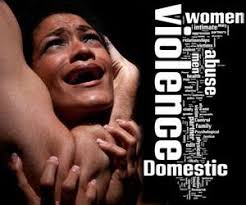Last year, prompted by a woman in distress seeking to escape an abusive and potentially dangerous domestic situation, I did a blog post entitled: “Domestic Abuse in Jamaica: Where are the safe houses for women seeking refuge?” You see, I was trying to identify where she could get safe harbour immediately. I came up empty. Since then, the government has announced plans to establish 3 national shelters and I’ve received confirmation that the Woman Inc crisis center is up and running. However, another recent encounter with a woman seeking to escape and resolve a violent domestic situation caused me to revisit the issue of resources and advice available to women in similar situations.
Continue reading Advice for Securing Justice in a Domestic Abuse situation in JamaicaTag: justice
Justice, Truth be Ours Forever…What does Justice look like?
Poor Governance… What are our options?
I was frustrated with the present government. I watched our Prime Minister deliver the main address at the PNP annual conference. I listened carefully. “So this is as good as it gets with the PNP? What are our options?” I was desperate for an alternative. But when I looked across to “greener” pastures, that hope dimmed. I blogged then about our need for a credible alternative, and opined that in their present state, I did not think that the JLP was much of a choice. I begged the JLP. I pleaded with them.
I was challenged, on separate, unrelated occasions by two people that I think highly of, whose opinions I respect, to think carefully about what I was saying. Their common thesis was “how can a credible alternative reside in another creature of the same system?” (my words). Think about it. How different are the JLP and the PNP really? Was I looking for mere respite or was I in search of a systemic fix?
In May 2010, under a JLP government, turmoil in the community of Tivoli, itself a JLP garrison, resulted in 72 civilians being killed. Having initially resisted an extradition order for “community leader” Christopher Coke, then PM Golding eventually capitulated and ordered the security forces to enter Tivoli, where it was thought he was hiding, and extract Coke for hand over to the US authorities. Conflict arose when the security forces came smack dab against resistance from elements in Tivoli. The entire city remained on lock down for a few days. Property was destroyed. People died. The nation and the world were appalled at what happened.
 |
| The Don Reigns Supreme |
 |
| What were these barricades supposed to do? Who erected them? |
 |
| Security Forces Ordered In… to do what exactly? What was their mission? |
The Tivoli COE: Facing what’s in the Mirror
We are now into the second week of the Tivoli COE and I am disturbed.
 |
| Maiden Cay |
 |
| Hellshire |
From Day 1 of the enquiry, I have grappled with this observation:The COE is being conducted in two languages. For the most part, the people giving testimony are doing so in Patois, but the lawyers are questioning in English. The need for clarification has come up repeatedly. Conflict between the written statements of the witnesses and what they are actually saying in the enquiry come up over and over again. You see, the people speak only Patois. But their written statements are in English. Are the discrepancies evidence of lies or are they misalignments, “lost in translation” as it were ?
What does Justice Look Like?
Consider this: Garrisons and Dons are a construct of the Politician. It was a way of securing and mobilising large blocks of votes in order to secure power. Both the PNP and the JLP have associated garrisons and dons.
Over time, the Don has evolved beyond the politician as his power source. He amassed wealth through his own means and wielded influence outside of the Politician.The balance of power shifted. The Politician now had to kowtow to the Don in order to keep his voting blocks secure.
The same Politician who birthed the Don and the Garrison, is the same Politician who sent in the Security Forces in the face of pressure and embarrassment. When the people demonstrate loyalty to their new boss the Don, and people die, that same Politician convenes a Commission of Enquiry to do what? Elicit truth? Seek justice? Justice for whom? And what does that justice look like?
Don’t seek to differentiate between JLP and PNP. The scenario that played out in May 2010 and the COE in 2014 could well have happened in another garrison, with different administrations playing alternate roles.
The Solution cannot reside with either the PNP or the JLP
Toggling between the JLP and PNP has landed us here. Their antecedents are the same. Their mechanisms are the same. Only the individuals differ.
The move from slavery to being a freed people under Britain, to becoming an independent nation took many years. It took challenging to laws of the day and agitating for change to move us along that trajectory. It took demonstrations. It took representation at the highest levels. Perhaps we just got too unwieldy and expensive for Britain to keep us on as a colony. Once we decided what we wanted however, we had to go after it.
Perhaps Jamaicans will have to challenge the status quo in similar fashion… how else will the systemic issues that allow successive governments to build and secure enclaves and plunder and hide and lie and reward loyalty change?
So What does justice look like?
The Jamaican middle class, the “Articulate Minority” stretched and growled in unprecedented manner the other day. Offended at the casual dismissal by a senior government official in seeking to differentiate between veranda talkers and tweeters here in Jamaica, and the voting, political base that keeps governments in power, middle class Jamaica lifted their voices. Stepping out of their comfort zone, they made placards and stood in New Kingston to voice their indignation at being dismissed out of hand and at the latest display of poor governance.
 |
| The Articulate Minority Dec 1 2014 |
Perhaps we ought to stretch ourselves just a little more out of comfort zones and consider matters of justice that impact lives and society beyond our own.
It is past the time to allow the Politician to hoodwink us. Do you really expect anything to come out of this COE given the roots of the issue and the authors of said issues?
It is time to press for real change…not just change of government, the same old systems remaining intact. Justice will come from systemic change that makes it difficult for corruption and inequity to prevail.
The people of Tivoli need justice. The increasingly pressured middle class need justice. Members of the security forces operating under orders need justice. We who can, must articulate a vision of Justice. We must press for it. I am aware that significant change doesn’t often happen overnight. But still we must press. We must guard those institutions and systems that offer even a measure of protection from marauding politicians. Even while acknowledging that toggling between orange and green is not The Solution, I cannot distance myself from one of the basic mechanisms left to us to effect change. Perhaps incremental change towards new systems, enacted by the party that wants our votes the most will prevent total destruction while we crawl towards a better day.
Clyde Williams, PNP member and lawyer, this morning posted this as his status on Facebook:
I have turned to Norman Manley’s speeches and writings to keep faith with the historical mission of the PNP, and to remind myself of some foundation ideals of this young democracy. In his address at the public session of Conference, 15 November 1964, Nettleford (1971, Selected Speeches) reports Norman Manley to have said, in talking about abuse of power, “Already men say when they hear of wrong: ‘what can I do about it?’ But for every time you allow wrong to pass unrebuked, you are breaking down the will to resist, and step by step you will find yourself left without courage to fight for what you believe in. Therefore, it is a duty to resist where resistance is right.”
The walls around our properties can only go so high. Our air-conditioned SUVs will continue to take us to select destinations until blockades and raging fires keep us prisoners in our own homes. To feel safe because you are in that section of society where a police will not drape up your son, or lock up your man for days, or where you can see your private health care provider in comfort and secure your child in private school is a to dwell in a fool’s paradise. After all, “justice denied anywhere diminishes justice everywhere.” Martin Luther King Jr.

